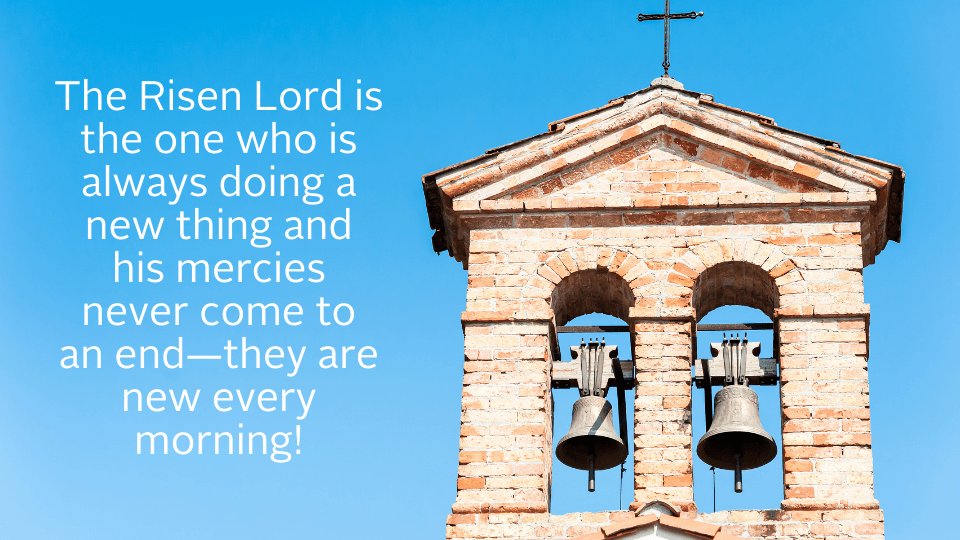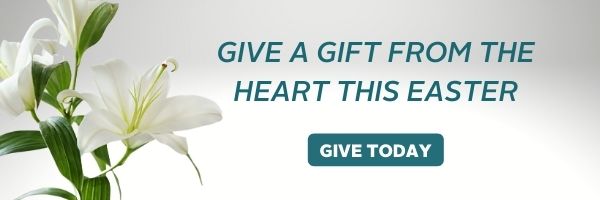The Bells of Easter – Your Easter Reflection from CMMB

Thank you to Michael Hilbert, S.J., CMMB board member, for sharing this special Easter reflection with us.
The most joyous expression of Easter is the ringing of bells. To wake up on Easter morning to the swelling of church bells touches the heart and lifts the soul! I like to read Edgar Allan Poe’s poem, “The Bells” and its euphony:
To the swinging and the ringing
Of the bells, bells, bells,
Of the bells, bells, bells, bells,
Bells, bells, bells—
To the rhyming and the chiming of the bells!
In many ways, we human beings are like bells. Let me name a few of those ways.
First, our shape. When bellmakers describe a bell, they speak of its crown and lip, its head and mouth, its shoulder and waist. We share, at least in our terminology, many physical features.
Second, bells are christened and given a name. Think of “Big Ben” in London, or “Fat Peter” in Cologne, “Glorious Mary” in Montreal, or “Liberty” in Philadelphia.
Third, bells serve a specific purpose. Poe lists a few: sleigh bells, wedding bells, alarm bells, church bells. We can add the dinner bell, the bell at a railroad crossing, the bell on the ice cream truck, and the cow bell. (Do you know why cows have bells? Because their horns don’t work!)
Bells call out to people, to work or to stop working; for battle, for peace, to warn of danger, to sound an alarm, to announce a death, to proclaim liberty, to celebrate joy, to tell the time, to make music. And on Easter the bells call us to the great celebration of the Resurrection.
And on Easter the bells call us to the great celebration of the Resurrection.
Fourth, bells, like people, are very strong but also very fragile—it might be made of bronze or iron, but if you strike it in the wrong way, it might crack. Ah, the powerful, vulnerable, wounded Liberty Bell!
Finally, bells are empty inside! They have to have a hollowness in order to have a fullness. If they were stuffed with cotton, or paper, or sand, or jellybeans, they couldn’t ring. “The rhyming and the chiming” would be muffled and useless. At Easter, the bells rejoice in another emptiness, the empty tomb, the greatest miracle of all. It is as if the emptiness of the bells calls out to the emptiness of the tomb.
When we sing, when we ring out our delight, we too need an empty place where the sound can reverberate, the diaphragm. We breathe deep to open up that hollow space in our bodies, to fill it with the good spirit.
In this same way we Christians allow the joy of the Lord to fill our emptiness, stir excitement and anticipation of good things wherever we go.
The Risen Lord is the one who is always doing a new thing and his mercies never come to an end—they are new every morning!

